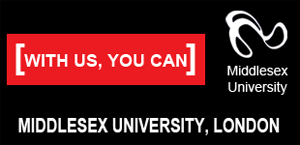Human Rights and the individual voice
I was in Australia on Churchill Travelling Fellowship in 1998 when I realised what the problem was. I had just filmed a march of indigenous people into Brisbane City centre to receive the keys to the city from the Lord Mayor. This public act by one of the five major cities in Australia was meant as an act of reconcilliation for all the dreadful human rights abuse the indigenous peoples had suffered since 1776.
The march took from midday to 7.30 in the evening just to travel a few miles and gather before city hall. Police blocked off the roads and the marchers, who had come from all over Queensland, sang and danced their way in traditional manner through the city’s main thoroughfare. After an evening of song and dance, speeches and poems, the Lord Mayor, Jim Sorely, presented the keys of the city and publically apologised to the indigenous elders. An incredible historic event.
The next day I was absolutely astounded by almost a total lack of coverage by any of the media of this event. It was as though it had never happened. At that time the media was owned almost exclusively by two people and neither of them had any interest in seeing indigenous issues on any page of a newspaper, in any broadcast on radio or programme on television. The Prime Minister of the day, John Howard, very publically and stridently opposed any apology to indigenous people on the intellectually shaky basis that it was not his fault and he had not done anything wrong.
This whole event posed the question of how we are to grow and develop the concepts and practices of human rights within a global society when a corporate owned media not only decides what is and is not history but does so according to agendas that are not based in human rights. The answer by 2000 was very clear to me, set up our own distribution system that does not control the editorial policy but leaves that to the contributors. That is exactly what we have done.
A team of volunteers, students and human rights abuse victims have demonstrated that where there is a will there is always a way. Human Rights TV is the result of that effort and now carries over 600 videos of testimonies and events that main stream media mostly passes by. The essence of the philosophy of Human Rights TV is to ’empower the voice seldom heard’ but there is a subtext in which we support, assist, train and help those so abused by giving them the means, skills and abilities to distribute their own voice.
This year, ten years after the Brisbane march, the new Australian Prime Minister delivered a devastating comprehensive apology to indigenous people in the Australian parliament. Maybe you saw that but if you didn’t then don’t worry because Human Rights TV carries it now when all the media have moved on. Things can change, hope is always there but the lesson of Human Rights TV is that whilst it is good to study, whilst it is beneficial to learn, how we apply our skills and knowledge really does effect the lives of the people we share a world with.
Jack Adams
Project Leader
Human Rights TV
volunteers always welcome from open source coders to budding film directors, from business studies to law, we need all the help we can get: info@humanrightstv.com
Category: Politics, Student News






